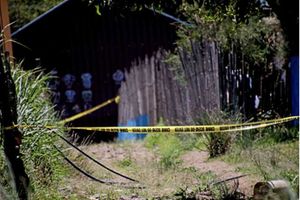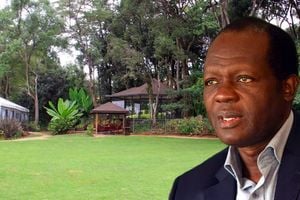My journey to becoming an Instructional Designer at a renowned university
What you need to know:
- Dr Kendi is the Instructional Designer and Partnerships Manager at Aga Khan University’s Brain and Mind Institute
- She is also the co-founder of Nikola Energy, which is focused on optimising resources
“I have very few regrets in my life, but there is one incident in high school that I wish I could go back to,” Dr Kendi Muchungi states as we scout for a space to sit for this interview.
“I was really good in mathematics, but a lack of self-confidence held me back. In Form Four, I was among the top three students who were invited to an international competition, but I gave up my spot to someone I considered better than me, even though that was not the case,” she reflects.
Dr Kendi is the Instructional Designer and Partnerships Manager at Aga Khan University’s Brain and Mind Institute.
“I evaluate educational needs, design and update course content, and craft educational materials as well as establish and nurture relationships with education entities, research institutions, and other stakeholders.”
She is also the co-founder of Nikola Energy, which is focused on optimising resources.
“The idea to start Nikola Energy was triggered by the trash my brother and I saw at the Meru bus terminus when we were traveling back to Nairobi from Meru where we had visited our mum. We just felt there was something we could do to turn the waste into something meaningful,” she says.
Growing up in Nairobi’s Jamhuri Estate as the oldest of three siblings, Dr Kendi was frequently required to lead in a variety of activities, from learning to swim and dance, to driving.
“My father was a graphics designer, and my mother is an accountant and they both influenced my career path in different ways. My mum sparked my love for mathematics, and I owe my work as an instructional designer to the activities we used to do with my father when I was a child.”
Dr Kendi studied Computer Science at Africa Nazarene University, and had to take a one-year break in-between to work in her mother’s accounting firm.
“I was her driver, tea-girl, and office administrator, an experience that gave me a better perspective of what it takes to support your family.”
After completing her undergraduate studies and working briefly at the Registrar's Department at Africa Nazarene University, she left for Canada in 2008 to pursue a Post-graduate diploma in Advanced Web Development as a self-sponsored student. She would later win a full scholarship for her Doctorate at the University of Surrey, United Kingdom. There she undertook research in Computational Neuroscience and held various roles, including marketing the department.
In 2016, she went back to Africa Nazarene University as an educator in the Computer Science department.
“When I began teaching, I felt a little incompetent so I joined the Association for Faculty Enrichment in Learning and Teaching (AFELT), where I found my wings. I learnt about the science of learning and engaged in Transformative Learning training. It is with the Association for Faculty Enrichment in Learning and Teaching that I got to work on the Transforming Employability for Social Change in East Africa (TESCEA) Project, where I began honing my skills as an Instructional Designer,” Dr Kendi, who is in her 40s, says.
“This experience led me to Aga Khan University’s Brain and Mind Institute as an Instructional Designer in 2021. Here, I have designed programmes that enhance public awareness about Mental Health and Neuroscience. I rose rapidly, and by August 2022, I was promoted to Instructional Designer and Partnerships Manager. In this role, I am orchestrating strategic partnerships that align with the vision of "Healthy Brain, Healthy World",” she says enthusiastically.
Dr Kendi believes her leadership style is one that emphasises collaboration and creating opportunities for discovery.
“Recently, however, I have recognised the need to offer more structure. Striking the right balance between providing guidance and allowing autonomy is crucial and is something I am currently working to improve.”
She notes that her proudest achievements are not particularly monumental.
“During the Covid-19 pandemic, my company, Nikola Energy, collaborated with students and some of my mentees to design an automated hand-washing barrel using the Internet of Things (IoT). This barrel facilitates up to 1,000 washes before requiring a refill, and boasts mobility. In future, I aim to bring this innovation to the market.
“I learnt my biggest life lesson when my dad passed on. He died when I was out of the country, and it made me realise that life is short, and I should make the best of today because we never know what tomorrow brings.”
Dr Kendi reveals that reflecting on missed opportunities makes her devise ways of ensuring she makes the most of her present chances.
For fun, she loves hiking with her siblings. “It is our way of catching up. My nieces and I engage in lots of fun activities like face painting and make-up. Those moments are pure gold for me.”
She plans to never stop learning and adapting, because there is always something new on the horizon.
“If there’s one piece of advice I'd give to anyone, it's to own your space, believe in your ideas, and surround yourself with people and experiences that make you grow. And, oh yeah, never underestimate the power of a good hike to clear your mind!" she concludes with a smile.





